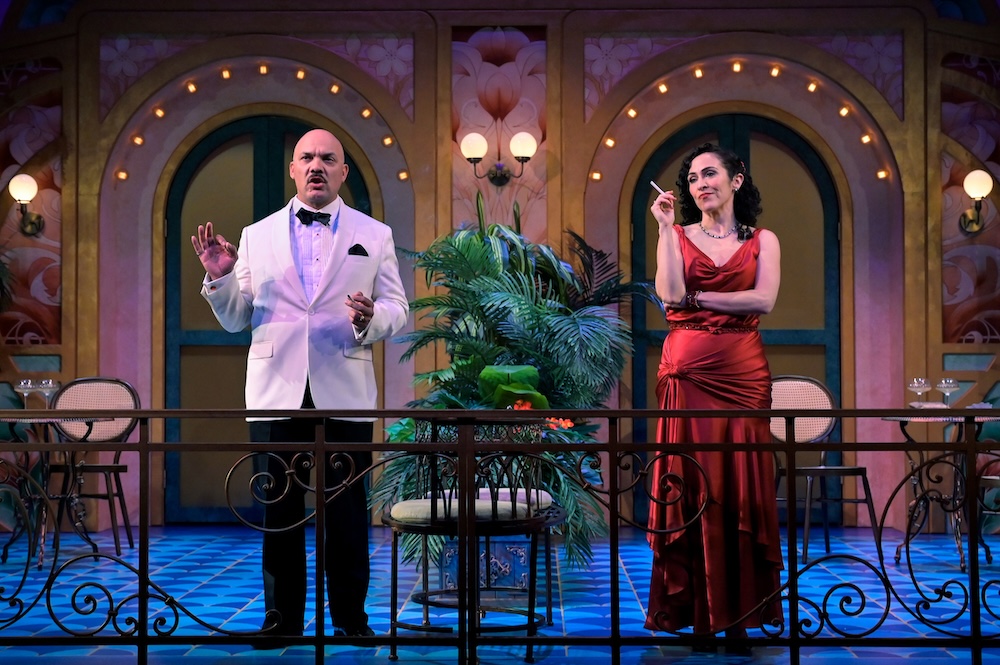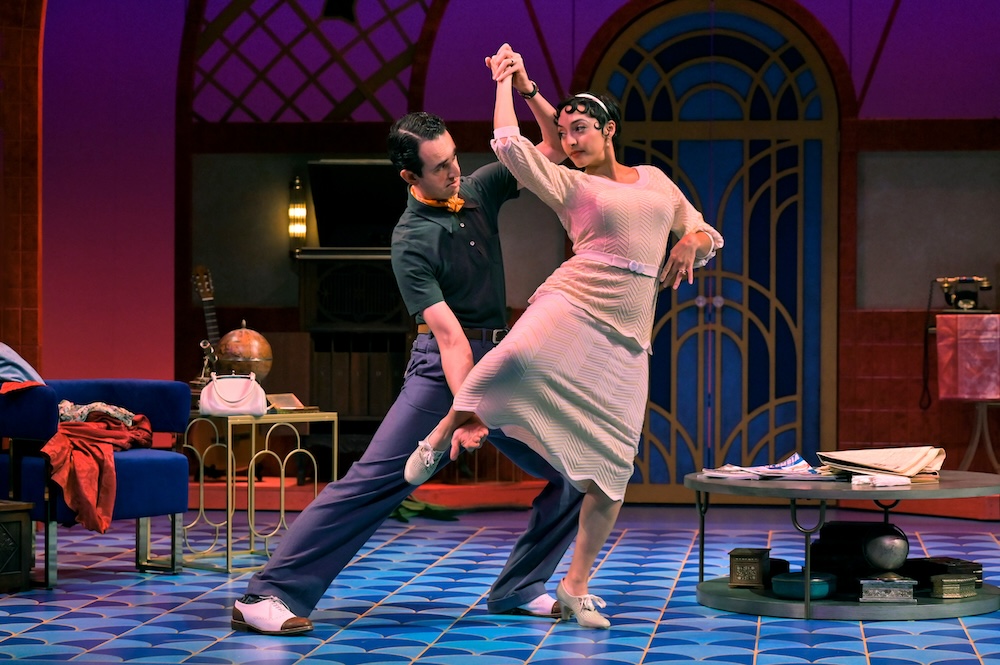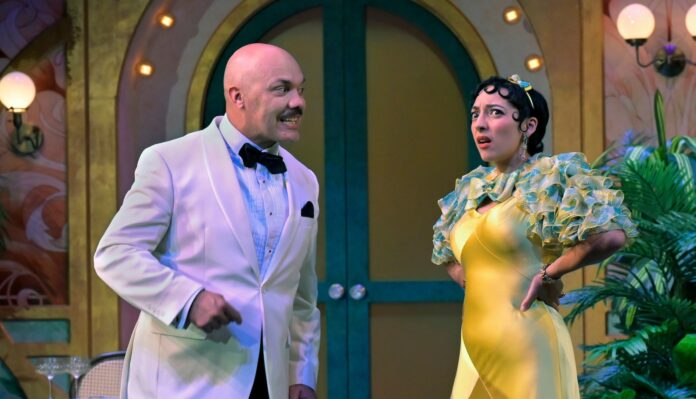I’m curious as to what Gen Z and even younger folks think of entertainment based around the idea that marriage is hell? I know they have a love-hate relationship with the outdated tropes on “Friends” (a show I saw once, 30 years ago, and never watched again), but I’d love to hear their thoughts upon coming across toxic relationship “classics” like “The Honeymooners” (with its infamous “Pow! Straight in the kisser” catchphrase, a domestic abuse-themed zinger) or “Married… with Children” (with its unabashed misogyny and inexplicable disgust for marital sex)? As the young’uns push for different kinds of real and fictional relationships, they’re doomed to constant cringing at pop culture’s history of terrible couplings.

Related: it’s been nearly 100 years since Noël Coward’s biting marital comedy Private Lives debuted to belly-laughing audiences all over the English-speaking world. With the play’s centennial looming, ACT’s latest production, which ran through October 6, was a unique staging, one that featured zero white actors. It was also nearly a century ago when Orson Welles produced his so-called voodoo Macbeth, reimagining the Bard’s supernatural tragedy with an all-Black cast. ACT’s new, all-Latine version couldn’t match that novelty, but did manage to underline the ways in which Coward’s play is as much a tragedy as it is a comedy.
The new production moved the plot’s action from the scenic shores of France to the coast of Argentina. That’s where once-divorced, middle-aged Elyot (Hugo E. Carbajal) has arrived to honeymoon with his young new bride, Sybil (Gianna DiGregorio Rivera.) As they look out from the hotel’s terrace (another gorgeous design from Tanya Orellana), Elyot is clearly smitten with his new trophy wife, but wishes she’d stop asking about his previous marriage. When he does speak of his last partner, it’s never in flattering terms.
On the other side of the terrace wall, we see middle-aged divorcée Amanda (Sarita Ocón), who has just arrived with her prim and proper young husband, Victor (Brady Morales-Woolery). The young man is more than happy to help Amanda forget about her horrendous ex-husband, whom she hopes to never see again.

As you may have guessed, the older newlyweds were once wed to one another. This makes things a bit awkward once they realize who’s on the other side of the wall. When Elyot and Amanda begin talking, they don’t have much nice to say about the past, but each claim to be content in the present. Things get complicated when the begin to ponder, of all things, a future.
Warranted or not, Private Lives’ venomous look at matrimony is inextricably linked to Edward Albee’s Who’s Afraid of Virginia Woolf? (director K.J. Sanchez once acted in back-to-back productions of both shows), and it’s not hard to see why. Though the former has the spoonful of comedic sugar to help it go down better, both Coward and Albee’s play feature young and senior couples staring at one another through the dramatic equivalent of a fun house mirror. The youngsters are determined to not end up in the state the elders see as inevitable, yet the elders are also forced to ponder when and where things took a turn for the rotten. No happy solution is given in either play, which is part of their unlikely appeal.
Although Sanchez’s production never outright said it, it added a look at the stereotype of Latine machismo. Even as it hewed closely to Coward’s text (save for some geographical substitutions and some Spanish sprinkled throughout), it was both outdated and fresh to hear Elyot and Amanda give their classic exchange. Elyot: “It doesn’t fit a woman to be promiscuous.” Amanda: “It doesn’t fit a man for a woman to be promiscuous.” The elders represent masculine and feminine ideals that were outmoded a century ago, even as Coward portrays Sibyl and Victor as too shallow and soft, respectively. Each couple is what the other imagines them to be, and using an all-Latine couple gave the title the an additional entendre: this is the intimacy folks don’t want white people to see, lest they feel they’re embodying stereotypes. It was one of the best uses of race-bent casting I’ve seen in some time.

Credit for that must surely go to Sanchez, who understands both culture and text equally. She directed her cast towards the perfect Hudsucker Proxy-like homage to the era’s rapid-fire dialogue, with all of them up for a little slapstick that is done at just the right level. (Watching Ocón awkwardly climb over the balcony as Carbajal merely walks over is one of the funniest things you’ll see on stage this year.) In fact, I dare say that Sanchez and her quartet more successfully remixed Coward than they all did with Shakespeare just two years ago. In both cases, the classic European text loses none of its power as the Latine aesthetic adds some much-need literal and proverbial color to the works.
Two years ago was also when ACT dropped its COVID safety requirements, so I was again one-of-a-handful of maskers attending this day-after-opening show. The house wasn’t entirely full, but pretty packed. Yet, I was surprised that my Aranet4’s CO² readings stayed low throughout the three-act performance. I mean, it averaged around 650ppm most of the night, topping off at 730ppm during the final bow.
One would hope that relationships are moving towards some form of equity and mutual respect as modern young folks get older. It would actually be a good thing if a play like Private Lives became an archaic curiosity rather than a reflection of (a segment of) modern marriage. Still, this public domain piece—first performed for the ACT in ’72, when it was directed by Francis Ford Coppola—is almost as malleable as the idea of “the perfect marriage.” Sanchez’s ethnic makeover actually gave the text a new layer of subtext and cultural significance. Add to that the fact that she directed with spot-on comedic timing, and one happily spent a couple hours watching these rotten people air their dirty laundry.
It’s not like you have to stay with them forever—they certainly don’t.






